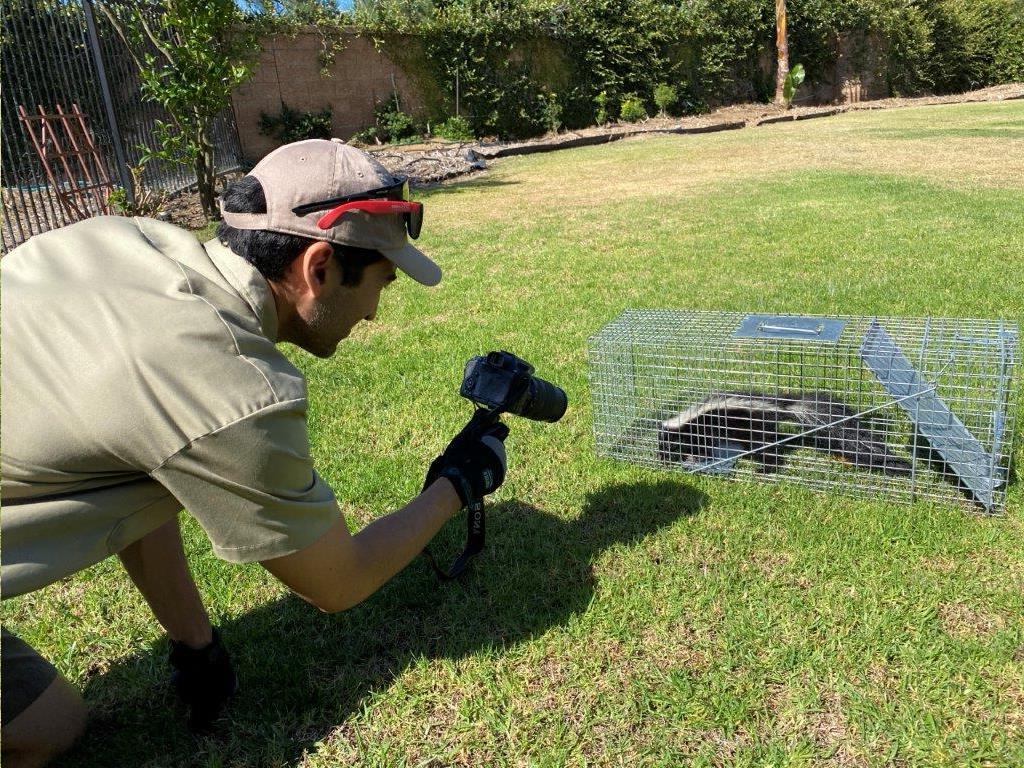
Small animals can be very vulnerable as they are easy targets for predators. As a way of defending themselves, many animals have evolved with self-defense mechanisms to help them stay away from danger. The skunk is no different. It is a relatively small animal about the size of an average cat. To defend itself from predators and anyone trying to hurt it, the skunk has developed a spraying system.
The spray comes from two glands found at the rectal opening of skunks just below their tail. All carnivores possess these glands; however only skunks have the smelly spray. The spray is an oily substance which is a mixture of sulfur-containing compounds such as thiols. This mixture gives off an offensive smell when sprayed. In medicine, thiols are used in anesthetics and antispasmodics. This is why their effects are potent in knocking out predators.
Although mostly targeted at other predators with a heightened sense of smell, it can be used on humans if they get too close. Anyone that has ever had an encounter with skunks will ask the same question: why do skunks spray? The answer is pretty simple. Skunks spray to defend themselves. They are generally peace loving animals and would likely not attack unless in self-defense.
Many predators are nocturnal, meaning they hunt for food at night and therefore they mostly rely on their sense of smell to hunt for food. The skunk’s spray is capable of disrupting the predator’s sense of smell. They retreat for a time, allowing the skunk to escape. Before spraying, however, skunks often give warning signs for the predator to back away. These signs include puffing up and stomping their feet several times. Most of the time, this works and the intruder retreats. If it so happens that the intruder does not get the message and still keeps approaching even after the skunk has given ample warning, then the skunk takes the act as an attack and sprays the intruder.
However, skunks mostly do not want to spray and would only do that when they have no other choice. Their spray reserves are not everlasting and they do run out. When this happens, it takes about a week for their bodies to build up another spray reserve. They therefore do not want to waste it and risk being defenseless if they run into another attack.
The smelly liquid coming out of the skunk glands is yellowish, oily, and very difficult to wash off. It is also very potent. It can render a predator unconscious and lose their balance for a few minutes. If it gets into the eyes, it is capable of causing temporary blindness for up to 15 minutes. These same effects can be felt by humans and although we do not possess a heightened sense of smell like most animals, the smell is still very offensive.
In order to get away from intruders, a skunk can spray its liquid up to 6 times in a row before it runs out. Skunks have evolved to be able to control the precision of the spray so they hardly ever miss. Another interesting thing is that skunks can shoot this spray as far as 15 feet away and not miss. The smell, if not properly washed off, can linger on the skin or in an area for up to a month depending on the quantity sprayed.
Skunks are capable of recognizing one another and do not spray each other. Therefore, you can see two skunks in one vicinity and not smell the legendary skunk smell. They are however not so friendly to other animals and humans and they will spray if anyone tries to get them even after giving a warning.
Go back to the Bethlehem wildlife removal home page.